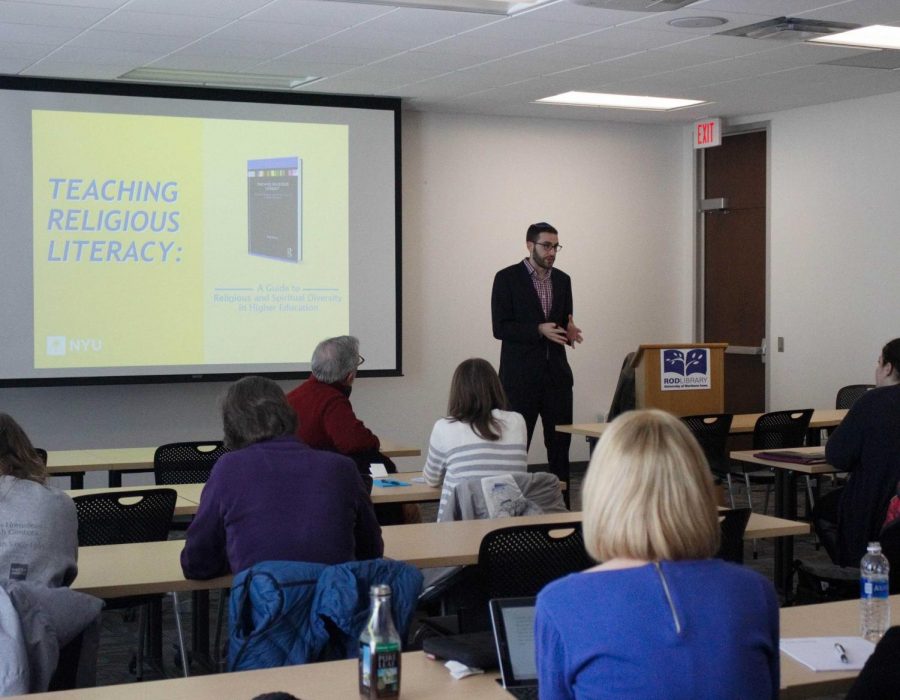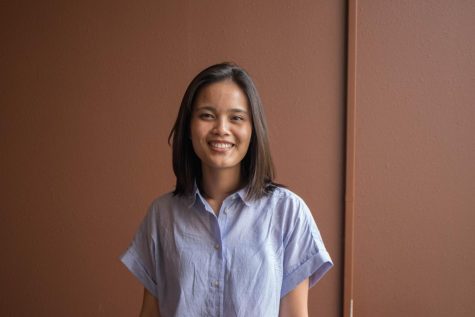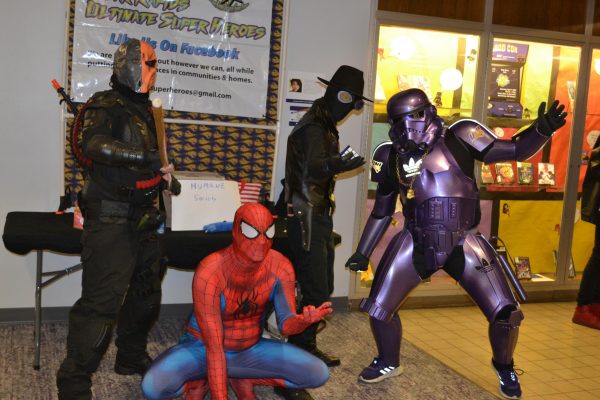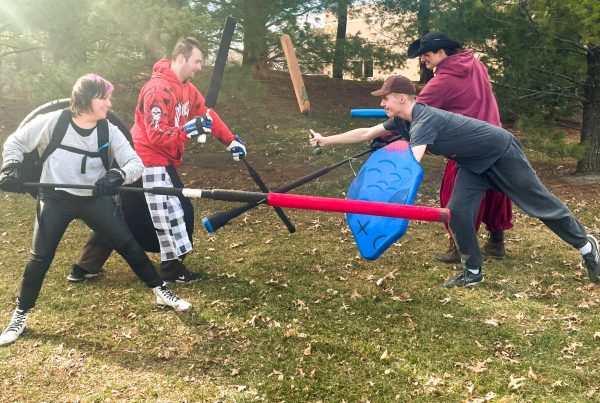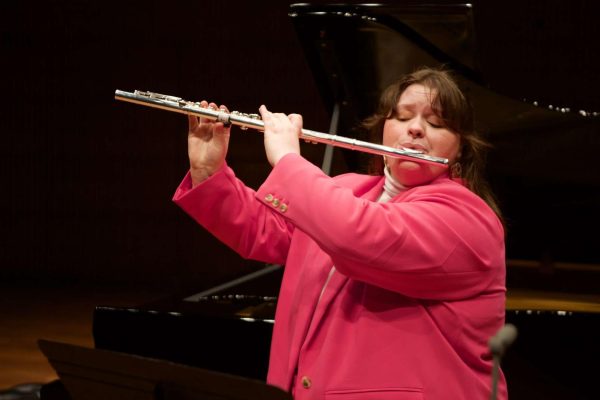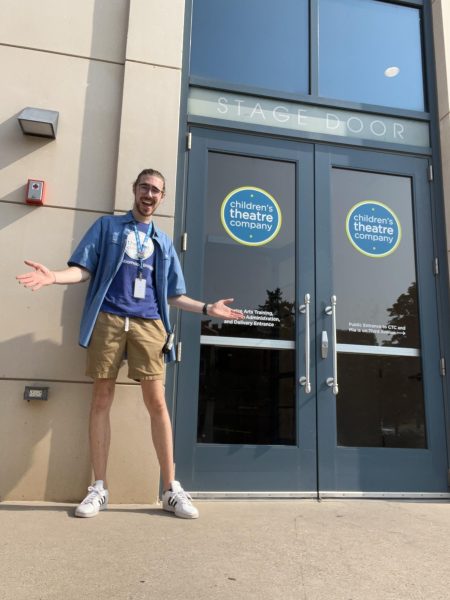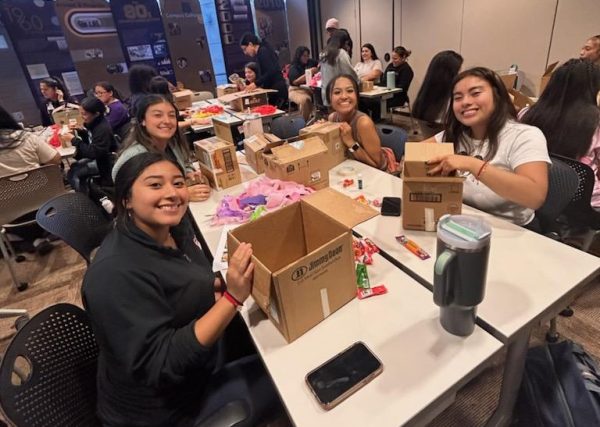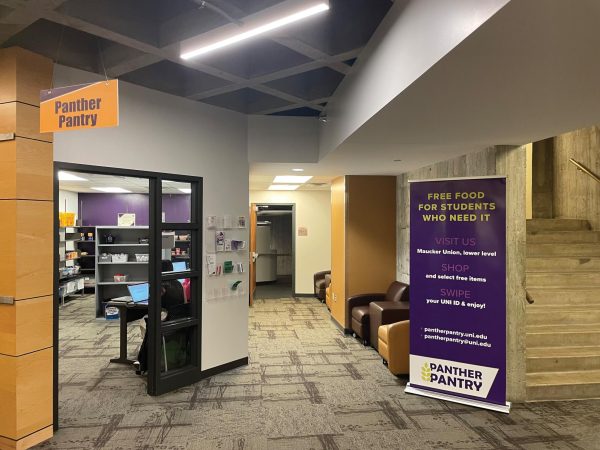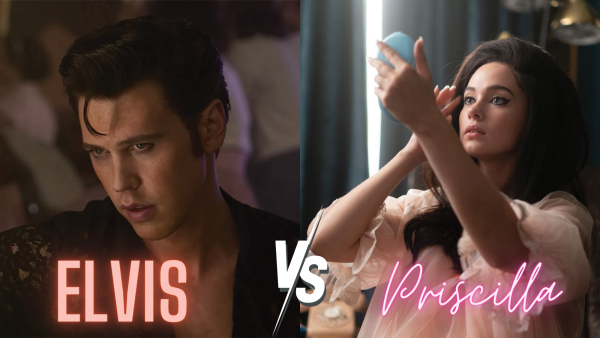Exploring religious diversity on campus
Ariel Ennis, the creator of Fath Zone multi-faith training, visited UNI to discuss religion and diversity.
Feb 19, 2018
In a time when race, gender and sexuality are contentious topics, the issue of religious and spiritual diversity is often pushed to the side.
Ariel Ennis, creator of the award-winning Faith Zone multi-faith training workshops at New York University (NYU), works to change that.
“People tend to ignore religion when thinking about diversity and inclusion,” said Ennis, who is the assistant director at the Of Many Institute for Multi-Faith Leadership in NYU’s Office of Global Spiritual Life.
On Wednesday, Feb. 14, several faculty members and students gathered at the Rod Library to hear Ennis speak about the Faith Zone workshop as discussed in his book, “Teaching Religious Literacy: A Guide to Religious and Spiritual Diversity in Higher Education.”
“The conversation about religious and spiritual diversity shares many similarities to conversations about racial and ethnic diversity or LGBTQ diversity,” Ennis said. “But it’s not exactly the same: there’s a specific set of terminology, there’s a specific set of skills, there’s a specific set of issues that are relevant to that field.”
Inspired by the Safe Zone project for the LGBTQ community, the Faith Zone workshop trains students in religious literacy.
“It’s a frame for: How do we think about religious and spiritual diversity within our community? How do we talk about that diversity? What tools can we use to better prepare our institution to be approachable to work with those questions?” Ennis said.
Ennis’ visit to UNI was coordinated by Threehouse: A Wesley Foundation. In conjunction with his lecture on Wednesday, Ennis held an actual Faith Zone workshop later that day.
In addition, on Tuesday, Threehouse hosted a showing of the documentary “Of Many,” highlighting the tension on college campuses between Jews and Muslims in the midst of conflict in the Middle East.
“It feels to me that in our religious experiences, we’re in danger of just staying with people who are like us,” said Pastor David Glenn-Burns, campus minister at Threehouse. “We divide into maybe our different ways of being Christian, or we think that everybody should be like us, and I reject that. I think that it’s a more faithful way of being in the world to be welcoming and able to meet and learn from people who are different than we are.”
The Faith Zone workshops are designed to increase participants’ religious literacy as defined by Diane Moore, founder of the Religious Literacy Project at Harvard Divinity School.
According to Moore, “Religious literacy is an understanding of the historic and contemporary interconnections of religion with cultural, political and social life and the ability to use this knowledge to promote allyship and engage in dialogue on issues of religious or spiritual concern.”
Those who undergo multi-faith training are given a pre- and post-workshop test on the four pillars to religious literacy: (1) knowledge, (2) ecumenical orientation (i.e., reaching out to other religious traditions), (3) self-awareness and reflection and (4) application.
In his lecture, Ennis discussed why the training was necessary in the first place.
One factor was the increasing globalization of higher education, with foreign students attending American schools and American students studying abroad.
“There’s far more educational exchange happening between American universities and the rest of the world,” Ennis explained. “What that means is that our conversations about diversity and inclusion, if they weren’t complicated enough already, are also becoming more complicated because they’re becoming more global.”
Ennis also noted that while many schools have LGBTQ centers and multicultural centers, few have centers focusing on religious diversity due to the misconception that students would not be interested.
“Researchers at UCLA [found that] overwhelmingly, college students display incredibly high levels of interest,” Ennis said.
Citing rallies and demonstrations that have occurred on college campuses, Ennis also discussed students’ passion for social change.
“Questions about diversity and inclusion are some of the most important questions to our students right now,” he said. “Sort of speaking anecdotally from what I’ve seen, it’s only increased since the election of President Trump. I think that has polarized these issues a little bit more.”


